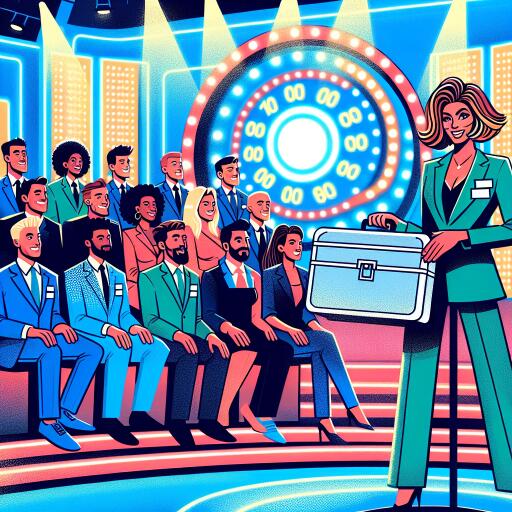Is Deal or No Deal Still Going Strong?
The television landscape has been graced by numerous iconic game shows over the years, but few have matched the staying power of Deal or No Deal. Launched in 2005 on Channel 4, this straightforward box-opening game show, hosted by the debonair Noel Edmonds, quickly became a beloved staple in households across the UK.
With a gripping format that hinged on suspense and a touch of destiny, Deal or No Deal captured the imaginations—and hearts—of viewers nationwide, delivering nail-biting moments that brought excitement into millions of living rooms. Its appeal wasn’t confined to the UK; the show’s infectious concept blossomed into a worldwide phenomenon, with versions emerging in countries as diverse as Algeria, Argentina, Peru, and the Philippines.
Despite its undeniable success, like all great things, Deal or No Deal eventually concluded its initial run on TV. The final curtain came down in 2016, marking the end of an era after more than a decade. These ‘farewell shows’ were celebrated with a tour format across the UK, offering a nostalgic and heartfelt goodbye.
Fast forward seven years, and the show’s die-hard fans were thrilled at the news of its revival. ITV stepped in to resurrect Deal or No Deal with a fresh face at the helm: the renowned gameshow host Stephen Mulhern. This revival is a testament to the show’s enduring popularity and cultural significance in the UK, resonating with audiences just as other major ITV brands do.
One of the driving forces behind bringing back Deal or No Deal to television was its lasting impact on British pop culture. Even after its original run ended, the show’s brand thrived in the digital sphere. Online casino developers have created numerous versions of the branded game, making it one of the top choices among slot enthusiasts. These iterations incorporate famous gaming mechanics, such as Big Time Gaming’s Megaways innovation.
The Deal or No Deal Megaways game captures the essence of the beloved show, transforming it into an immersive casino experience. Familiar show elements like the Banker, the iconic red boxes, and nerve-wracking decision-making continue to engage fans. The inclusion of a seven-figure progressive jackpot adds an extra layer of excitement, offering even greater payouts than the latest TV version.
One noticeable change between the original Channel 4 series and the newly revived ITV version is the prize money. The original program offered a top prize of £250,000, which could potentially change a contestant’s life dramatically. In contrast, ITV’s version has capped the grand prize at £100,000.
While the prize money has been reduced, the level of tension and high stakes remains as potent as ever. The mental and strategic dimensions of the game keep both contestants and viewers engaged, demonstrating that beyond the financial allure, Deal or No Deal is about the psychological battle with the Banker and the electric atmosphere of each decision point.
Deal or No Deal has exhibited remarkable resilience, evolving from a breakout TV sensation to a multifaceted entertainment juggernaut. Its recent revival on British television and sustained popularity in online gaming circles attest to the franchise’s powerful appeal. Whether on the small screen or in digital formats, the thrill of Deal or No Deal endures, inviting participants and fans alike to challenge their luck, wits, and instincts in thrilling contests against the Banker.









